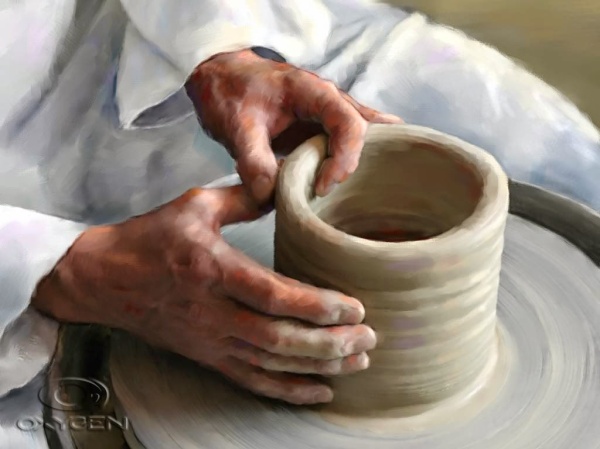James 1:17-18 reminds us that we have a good God whose person and gifts are of more value than anything we may seek outside of Him.
Part 7 of a whole book study series called “True Faith: A Study Through James”
Find the whole series in James here.
—
17 Every good thing given and every perfect gift is from above, coming down from the Father of lights, with whom there is no variation or shifting shadow.
In the first part of verse 17, James emphasizes the source of all good gifts. He does this by using two different phrases that amount to roughly the same things: “every good thing given” and “every perfect gift.”
The repetition here underscores what James has just talked about in the verses prior: the idea that sin is the counterfeit of God’s goodness. James has already warned believers not to be deceived by this counterfeit and what he says here serves to cement this point. Sin promises you satisfaction. Sin promises you pleasure and wears a veil of goodness. Yet looking below the surface of sin, we see it produces only destruction.
We can look back to verse 5 and see an example of how God gives the good gift of wisdom when we ask in faith, believing and not doubting God. This brings to mind, too, Jesus’ words during His sermon on the mount: So if you, despite being evil, know how to give good gifts to your children, how much more will your Father who is in heaven give good things to those who ask Him! [Matthew 7:11] The true source of good is to be found only in God. He seeks to give us good gifts, blessing us even though we don’t deserve it. As the Belgic Confession says in Article 1, God is not only good, but “the overflowing source of all good.” This is reminiscent of Psalm 36:9, which states that with you [God] is the fountain of life and in your light do we see light. We don’t need to look outside of Him for another source of goodness.
Given how much time James spends in these first 18 verses of chapter 1 on difficulties and temptation, verse 17 serves to encourage us about the one who ordains and carries us amidst difficult trials as well as temptation. In both kinds of circumstances, we can trust God’s goodness.
The Father of Lights
In his commentary on James, Douglas Moo suggests the reference to “Father of lights” speaks to God’s place as Creator and absolute power in the universe. He is, in effect, Lord of all creation, in heaven and on earth, ruling over “the heavenly bodies, including sun, moon, and stars.” (Douglas Moo, James: an Introduction and Commentary, Tyndale, 75)
While it’s possible in the Greek to be very technical about James’ usage of “lights, variation,” and “shifting shadow” here, the clearest understanding is most likely to see James conveying the idea that in creation, we see constant changes. Yet God is not like His creation in this way. He is perfectly stable and unchanging, and this is another reason we can trust Him as a good Father. It reminds us, too, of John’s words: God is light and in Him there is no darkness at all. [1 John 1:5] Alex Motyer summarizes this description of God as a being who is “wholly light — pure, clear, and luminous with goodness.” (Alex Motyer, The Message of James, BST, 56)
As we have seen that sin leads to death, the Father of lights leads us in and through Christ to light and life in Him.
Believers Are God’s Chosen First Fruits
18 In the exercise of His will He gave us birth by the word of truth, so that we would be a kind of first fruits among His creatures.
The Net Bible translates the first part of verse 18 as, “by His sovereign plan,” which is a wonderful (and humbling!) truth. Moo notes James’ usage of the Greek boulētheis is God’s “gratuitous and spontaneous determination” to choose a people to be His own, by His own perfect counsel. (Douglas Moo, James: an Introduction and Commentary, Tyndale, 76) Motyer adds that the Father chose to make us “specially His,” using the gospel as the instrument of redemption. (Alex Motyer, The Message of James, BST, 57) There is a strong emphasis in the Greek that it was all of God’s doing.
Interestingly there is a contrast here in the concept of giving birth (as opposed to the negative concept of it earlier when James referred to desire giving birth to sin). Here the idea is that of bringing us forth, out of death (see Ephesians 2:1-5), into new life. This new birth is in itself a gift from God. Those being “born” here are being acted upon, just as a child in the mother’s womb comes forth as a result of actions outside of his or her control.
So first the Father chose us before the foundations of time [Ephesians 1:4], then He chose the means by which that choice would be made a reality: the word of truth, that is, the gospel. As John says in his gospel account, as many as received Him, to them He gave the right to become children of God, to those who believe in His name, who were born, not of blood, nor of the will of the flesh, nor of the will of a man, but of God. [John 1:12-13]
Believers are the first indication of God’s intention to redeem His entire creation from the ravages of sin. This is what is meant by first fruits. James is thinking about the Old Testament practice of the first fruits, by which, during a harvest, people set aside the best of their crop for the Lord. This was a way in which His people remembered all that God had done for them and how He had always fulfilled His promises to them. In this case, it is God who has set us aside for Himself.
As first fruits, the believing church (the body of Christ) is uniquely sanctified among all of God’s creation. We are an indication that, in His perfect timing and sovereign plan, we (and the creation itself) will one day be released from the bondage and effects of sin and be forever redeemed as we enter into His glorious presence (see for example Romans 8:18-23).
—
I pray that this encourages you today to know that you are precious in God’s sight, that He continues to show you His goodness, no matter what season of life you are in, as you look forward in hope to the day of completion.





 The sense of being enticed (
The sense of being enticed ( Similarly, we may find a specific temptation that is conceived in our mind or our affections. We feed that temptation, essentially giving it what it needs to grow. Finally, after a time, the temptation takes our desire and expresses them in action; this is sin. Here the inevitable outcome of feeding the temptation is sin. Rather than a living, fruitful action, the “birth” of sin only brings forth death — this is not necessarily literal death, but can be shipwrecking yourself spiritually and/or bringing destructive consequences upon you or others.
Similarly, we may find a specific temptation that is conceived in our mind or our affections. We feed that temptation, essentially giving it what it needs to grow. Finally, after a time, the temptation takes our desire and expresses them in action; this is sin. Here the inevitable outcome of feeding the temptation is sin. Rather than a living, fruitful action, the “birth” of sin only brings forth death — this is not necessarily literal death, but can be shipwrecking yourself spiritually and/or bringing destructive consequences upon you or others. The word persevere means “to endure,” but there is no sense of having to do it alone. It is bearing up and shouldering the burden, but not in your own strength. If anything, a trial is intended to bring you closer to God by showing you how you can’t go it alone. It can be difficult to draw close to Him during times of difficulty. I know my own tendency has often been to withdraw into a darkness and spiritual depression, only being aware of how much pain there is around me. Or I may simply default to thinking about how I can get out of this discomfort by my own means. But that’s not God’s intention for me.
The word persevere means “to endure,” but there is no sense of having to do it alone. It is bearing up and shouldering the burden, but not in your own strength. If anything, a trial is intended to bring you closer to God by showing you how you can’t go it alone. It can be difficult to draw close to Him during times of difficulty. I know my own tendency has often been to withdraw into a darkness and spiritual depression, only being aware of how much pain there is around me. Or I may simply default to thinking about how I can get out of this discomfort by my own means. But that’s not God’s intention for me. We often think of trials as something to pray to get out of as fast as possible. We pray me-centered prayers of escape, desperate for deliverance, clamoring to emerge on the other side, back into our “normal” and comfortable lives. And there is in some sense a reason to pray in such a way that you throw yourself on God’s mercy and acknowledge, as David did in many of his psalms, that God is the only deliverer — whether that deliverance comes now or in eternity.
We often think of trials as something to pray to get out of as fast as possible. We pray me-centered prayers of escape, desperate for deliverance, clamoring to emerge on the other side, back into our “normal” and comfortable lives. And there is in some sense a reason to pray in such a way that you throw yourself on God’s mercy and acknowledge, as David did in many of his psalms, that God is the only deliverer — whether that deliverance comes now or in eternity.
 The reality of life in this world is that it’s laced with trial and suffering. It is a fallen world with fallen, sinful people in it, and storms are always around the corner. As Dumas wrote in his novel, The Count of Monte Cristo:
The reality of life in this world is that it’s laced with trial and suffering. It is a fallen world with fallen, sinful people in it, and storms are always around the corner. As Dumas wrote in his novel, The Count of Monte Cristo: You may wonder, why does James seem to “jump” from talking about enduring trials and asking God for wisdom with confident faith to talking about our perspective as rich or poor people? Our very circumstances may in many cases be a trial or test and require wisdom to navigate. To a person who has little, they are tested to endure with little. To a person with much, they are tested to see what is truly of value. I do not believe that one or the other is more “blessed” in the sense that the world sees blessing. We are too quick to attribute a person’s material prosperity as being “blessed” by God.
You may wonder, why does James seem to “jump” from talking about enduring trials and asking God for wisdom with confident faith to talking about our perspective as rich or poor people? Our very circumstances may in many cases be a trial or test and require wisdom to navigate. To a person who has little, they are tested to endure with little. To a person with much, they are tested to see what is truly of value. I do not believe that one or the other is more “blessed” in the sense that the world sees blessing. We are too quick to attribute a person’s material prosperity as being “blessed” by God.